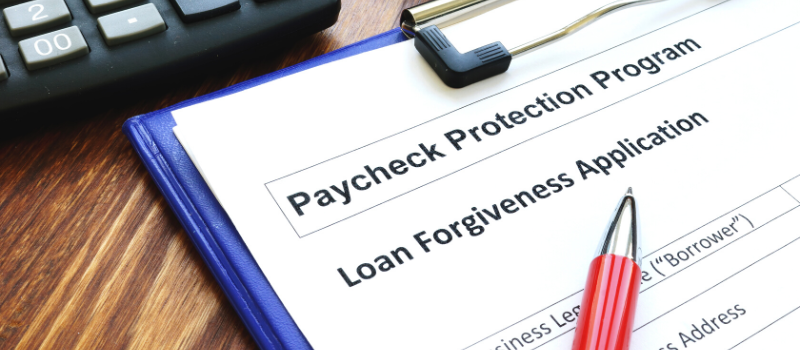On November 18, 2021, the IRS issued three revenue procedures clarifying some of the big lingering questions concerning the tax effect of PPP loan forgiveness. Specifically, practitioners faced uncertainty working on 2020 tax returns around when a taxpayer should recognize tax-exempt income from PPP loan forgiveness. Taxpayers reasonably could have recognized PPP forgiveness income at any of three time periods:
1) When PPP loan proceeds were received in 2020 and used for eligible expenses;
2) When the PPP loan forgiveness application was submitted to the bank; or
3) When the taxpayer received formal forgiveness from the SBA.
In the absence of formal guidance, taxpayers took differing positions, though waiting until the receipt of a decision from the SBA was the safest approach. In a somewhat surprising move, the IRS has provided guidance in Rev Proc 2021-48 that allows taxpayers to adopt any of these approaches, and it provided some additional simplified relief procedures to change the method previously chosen. This guidance may be particularly valuable for taxpayers who sustained losses during 2020 that were originally limited due to basis restrictions and who may now be able to recognize such losses in 2020 and take advantage of other COVID-19 relief provisions.
Rev Proc 2021-48 covers the timing of tax-exempt income and provides that any taxpayer that received loan forgiveness on a PPP loan may treat the tax-exempt income resulting from the partial or complete forgiveness of such PPP loan as received or accrued at either 1) when the taxpayer incurs eligible expenses, 2) when the taxpayer applies for PPP forgiveness, or 3) when the PPP loan forgiveness is granted.
Rev Proc 2021-49 provides that PPP tax-exempt income and deductions related to the PPP and other COVID-19 relief programs are to be allocated among partners in a partnership in accordance with section 704(b) and in respect to each partner’s interests in the partnership as determined under Treas. Reg. §1.704-1(b)(3).
Readers will no doubt notice that this guidance was issued well after the filing deadline for most 2020 income tax returns, and that many partnerships subject to the centralized partnership audit rules under the 2015 Bipartisan Budget Act (BBA Partnerships) are not permitted to file amended partnership tax returns. Rev Proc 2021-50, however, provides such BBA partnerships with a limited opportunity to amend their previously-filed 2020 partnership tax returns until December 31, 2021 to adopt the guidance issued in Rev Proc 2021-48 and Rev Proc 2021-49.
Author:Scott Paterson, JD, LLM |[email protected]
Questions?
If you have questions regarding these revenue procedures, and how you can possibly benefit from amending your 2020 tax returns, please reach out to your Withum advisor.




